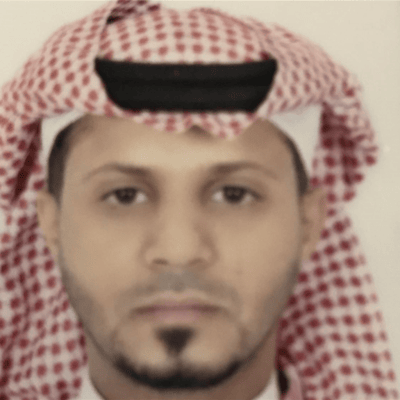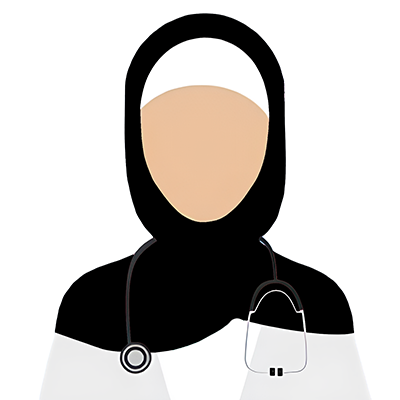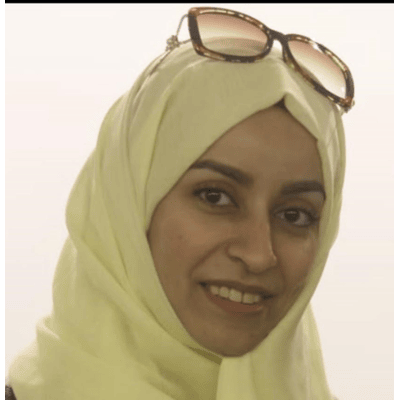Physiology
|
About the Department
Our major mission is to understand how the physiology of our body works, from the molecular level to the integrated system of cells and the whole organism. We aim to ensure people live healthy lives. Our expert staff achieves this by offering high-quality, carefully designed courses to educate and train the next generation. They also engage in advanced research using the latest tools. Additionally, our dedicated physiologists work to uncover how the body functions in both health and disease, seeking new ways to prevent and treat illnesses.
Head of the Department

Dr. Hadeel Ahmed Alsufyani
Associate Professor
Academic Staff Members

Dr. Ahmed Mohammed Al-Sahli
Assistant Professor

Dr. Rawia Saeed Jabbar Al-Shehri
Lecturer

Dr. Safa Yousef Omar Al-Maghrabi
Associate Professor

Dr. Hasan Hatem Hasan Qadi
Demonstrator

Dr. Mohammed Matoog Karami
Assistant Professor
Curriculum
Fundamentals of Medicine
FOND201
2nd Year, Medicine
Dentistry
PHYD 201
2nd Year, Dentistry
Nursing
PHYN 208
2nd Year, Nursing
Pharmacy
PHYP 201
2nd Year, Pharmacy
Medical Rehabilitation Sciences
PHYM 204
2nd Year, Medical Rehabilitation Sciences
Applied Medical Sciences
PHYT 205
2nd Year, Applied Medical Sciences
Medical Laboratories
-
2nd Year, Medicine
All Physiology Courses for Medicine
-
3rd Year, Medicine
Program name
Master of science in physiology.
Program Overview
The Master of Science program in Physiology is one of the postgraduate programs offered by the Department of Clinical Physiology in the Faculty of Medicine at King Abdulaziz University in Jeddah.
Program Objectives
- Empowering the student with the knowledge of basic and fundamental concepts to understand the physiology of the body.
- Enhancing the body of scientific research and scientific publishing.
- Training the student in the appropriate and suitable laboratory and research skills for the job market.
- Continuous development of program courses to meet the needs of the students.
- Creating opportunities for career development and research opportunities for the teaching staff.
Program mission
The mission of the Master of Physiology program at King Abdulaziz University is to equip students with advanced knowledge and research skills in human physiology and contribute in the societal well-being.
Program goals
- Prepare a high efficiency Saudi career path for master's degree holders in terms of academic qualification, professionalism, and scientific expertise.
- Contribute to the development of scientific medical research.
- Upgrade the educational process for students excelling in higher education locally, and encourage creativity and innovation.
- Contribute to studying and treating health problems in communities through specialized scientific research.
Admission Criteria
- Applicants should hold a bachelor’s degree in medicine and surgery with a minimum C grade, or a bachelor’s degree from one of the paramedical specialties or from the faculty of science (Medical physics, Microbiology, Biology, or Biochemistry) with a minimum B grade.
- Applicants should obtain a letter of approval from their employers.
- Passing the general aptitude exam for university graduates with a grade of no less than 65%.
- Passing the distinction exam held by the department.
- For applicants holding a bachelor’s degree in science, an English test requirement is mandatory with a minimum score of 5 in IELTS or its equivalent in TOEFL.
- Distinction of applicants is based on bachelor’s degree grade (60%) and distinction exam score (40%).
In addition to the general admission requirements for graduate programs at King Abdulaziz University, please refer to the following link:
More Information
Program learning outcomes
Knowledge and Understanding
- Establish the principles physiology of different body systems including their functions, mechanisms involved in different functions, regulation, neurohormonal control and higher centers organization.
- Demonstrate how different human tissue, organs and body systems are cooperated and interrelated to conduct a specific function.
- Acquire knowledge of theory and existing research and practice in human physiology.
Skills
- Evaluate and correlate critically various functions related to different body systems, in order to discern reliable molecular mechanisms of how these systems perform their function in harmony.
- Communicate information related to the functions of different body systems through written, verbal, or multimedia formats, in order to assess current knowledge human physiology and to explore UpToDate physiological processes and their mechanism of actions.
- Use scientific approach to generate hypothesis, research questions and design experimental approach in order to gather and analyze data on human physiology.
Values, Autonomy, and Responsibility
- Demonstrate a capacity to communicate comprehensively and persuasively.
- Express skills of self-learning and teamworking domain in searching a valuable information from reliable sources.
- Demonstrate critical scientific thinking to evaluate and create solutions and take responsibility solving problems ethically and intellectually.
Study Plan
The study plan for the Master’s program in Human Physiology contains no less than (32) accredited units, including the Master’s thesis, and is distributed as follows:
- 16 credit units for compulsory courses
- 8 credit units for elective courses
- 8 credit units for the master’s thesis
Details as follow:
a) Compulsory courses
| Subject code |
Subject |
Credit units |
| PHYM 701 |
General physiology and autonomic nervous system |
2 |
| PHYM 702 |
Cardiovascular physiology |
2 |
| ANTM 821 |
Neuroanatomy 1 |
2 |
| CO 703 |
Biostatistics |
2 |
| PHYM 706 |
Central nervous system and special sense |
3 |
| PHYM 707 |
Renal physiology |
2 |
| PHYM 894 |
Research methodology and ethics |
2 |
| PHYM 801 |
Seminar |
1 |
b) Elective courses
| Subject code |
Subject |
Credit units |
| PHYM 703 |
Gastrointestinal physiology |
2 |
| PHYM 704 |
Respiratory physiology |
2 |
| PHYM 705 |
Blood and immunity |
2 |
| PHYM 896 |
Special topic |
2 |
| PHYM 708 |
Body fluids and acid/base regulation |
2 |
| PHYM 709 |
Higher functions of the central nervous system |
2 |
| PHYM 711 |
Metabolism and temperature regulation |
2 |
| PHYM 712 |
Endocrine and reproduction physiology |
2 |
| PHYM 720 |
Special topic |
2 |
c) Degree thesis
| Subject code |
Subject |
Credit units |
| PPHYM 899 |
Master degree thesis |
8 |
Statistics of the program
- Number of students enrolled in the program 2023-2024: 15 students.
- Number of students who started the program 2023-2024: 15 students.
- Number of students who completed the program 2023-2024 : 3 graduated, 12 in progress.
Objectives
- Actively participate in the educational programs of the colleges of medicine, dentistry, pharmacy, applied medical sciences, and nursing.
- Offer an integrated program for medical and postgraduate students, facilitating their pursuit of master's and doctoral degrees.
- Conduct medical research in various fields of physiology, including the nervous system, cardiovascular system, digestive system, respiratory system, reproductive system, endocrine glands, blood physiology, and more.
- Collaborate directly and effectively in clinical research with various partners.
|
Last Update
4/16/2025 3:59:56 PM
|
|